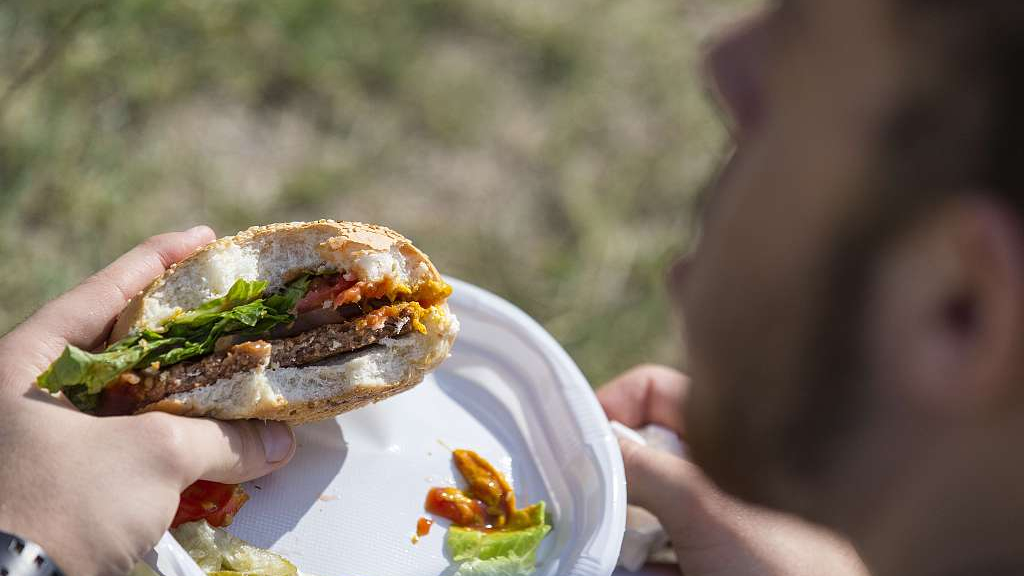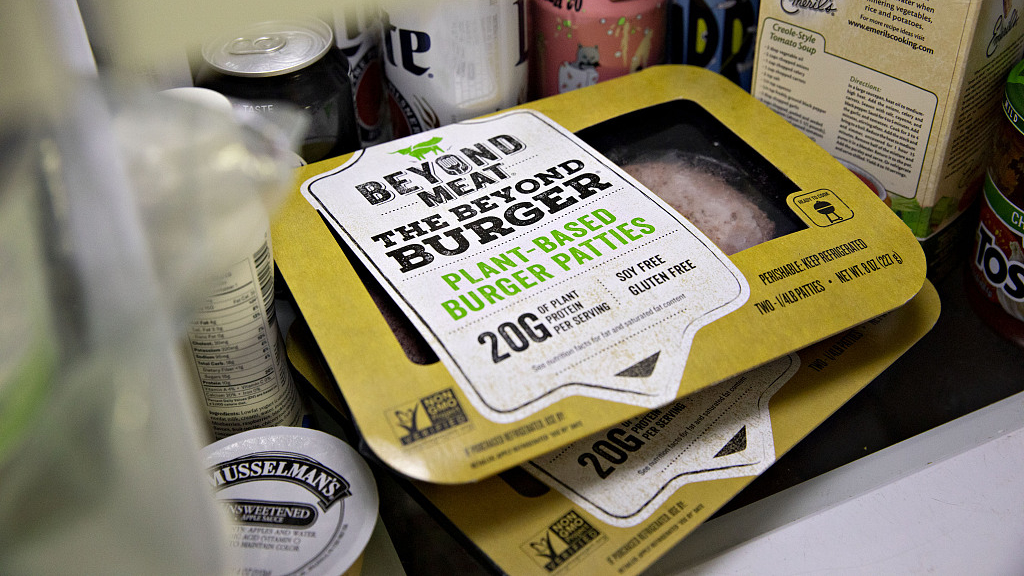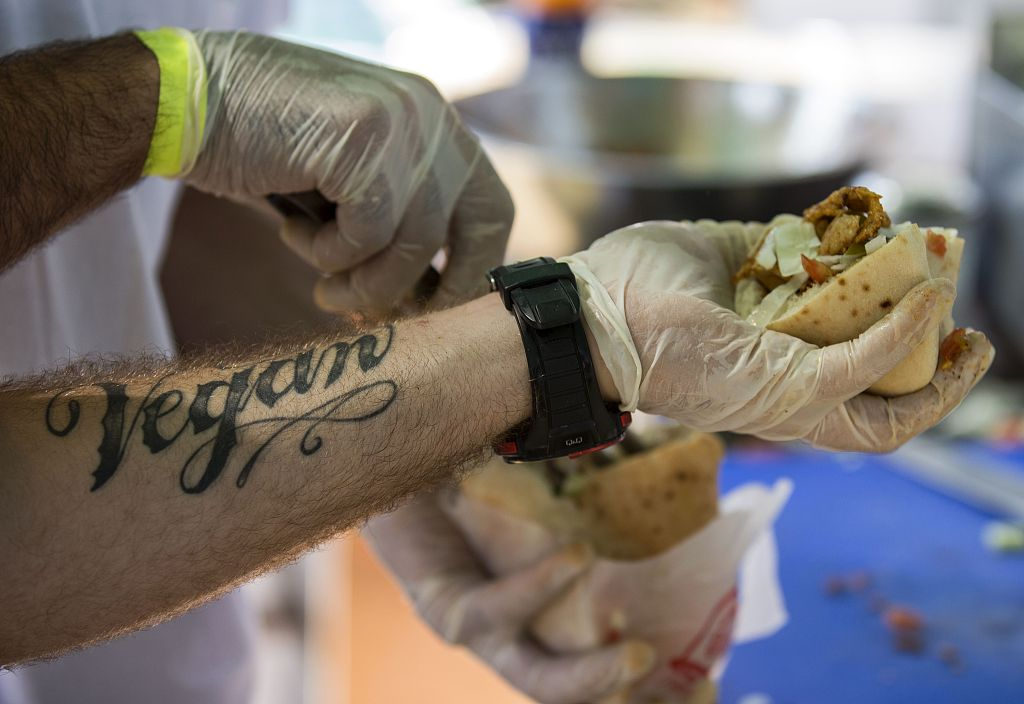

Lawmakers on both sides of the Atlantic want terms like "veggie burger," "seitan steak" and "soy sausage" thrown into the trash bin, but backers of plant-based eating have a beef with that.
Ten European organizations have just penned an open letter to members of the European Parliament's agriculture committee urging them not to push ahead with a proposal to ban plant-based meat substitutes from bearing labels traditionally associated with animal products.
The committee in April approved an amendment that would "exclusively" reserve designations used for meat products to those derived from animals, effectively prohibiting vegan foods from using meat-like nomenclature. The move follows a 2017 decision by the Court of Justice which restricted the denomination of plant-based alternatives to dairy products, outlawing the use of terms like "milk," "cheese" and "yogurt" for edibles not of animal origin.
Éric Andrieu, the French MEP who headed the drafting of the legislation, said the proposed ban was simply "common sense," the Guardian reported – but the plant-based movement is not on board with that.
"To ban the use of those widely-used terms is unnecessary and would only result in confusing consumers and preventing them from making informed choices while purchasing products," read the open letter. It was jointly written by The Good Food Institute Europe, The Vegan Society, and the European Environmental Bureau, among others.

The European Parliament's agriculture committee is worried people might buy plant-based burgers thinking they're from cows. /VCG Photo
Veggie burgers vs discs
Consumer confusion seems to be the argument of choice of both camps.
Supporters of the measure say they want to protect consumers from misleading marketing and make sure that whoever walks into the store wanting a beef burger doesn't come out with a chickpea patty. Opponents of the move believe that coming up with new monikers for plant-based alternatives to meat – such as veggie discs instead of burgers and veggie tubes instead of sausages – would send consumers scratching their heads.
"European consumers have been accustomed for many years to the use of terms such as 'vegan sausage' or 'veggie burger' to designate plant-based alternatives to meat," the petition read.
"There is no evidence of consumer confusion regarding the naming of plant-based alternatives to animal products; on the contrary, consumers purchase these items because they do not contain meat or dairy," the NGOs argued.
Cruelty-free foods – from almond milk to faux beef mince – are having a moment in Europe, driven by a growing population of health-conscious, environmentally-aware and animal-friendly customers.

These sausages might look like meat, smell like meat, and taste like meat, but they're made of plants. /VCG Photo
A 2018 report by the EU-funded project TRansition paths to sUstainable legume-based systems in Europe (TRUE) found that the alternative meat sector on the continent has achieved an impressive growth rate of 451 percent since 2013. And according to a survey by IRI the same year, 39 percent of Europeans across seven countries bought plant-based foods, a 26-percent increase over three years.
A whole lot of these people are not converts to vegetarianism or veganism. They are simply cutting down on their carne cravings for health reasons or to lower their carbon footprint, amid a surge in plant-based offerings that have a similar mouthfeel and texture characteristics to animal-derived meat.
Last week, advocates of plant-based eating received a much-needed boost from the UK Parliament, after the House of Lords European Union Energy and Environment sub-committee challenged the justifications presented by the MEPs for the terminology restrictions.
"We are concerned that the amendment would in fact reduce consumer clarity, be a barrier to growth for a burgeoning sector of the food industry, and ultimately make it more challenging for people to reduce the amount of meat in their diet," Committee Chairman Robin Teverson wrote in a letter addressed to Farming Minister Robert Goodwill. He has since been replaced by George Eustice.

You don't have to be a vegan to enjoy plant-based burgers, sausages and bacon. /VCG Photo
The amendment of the European Parliament's agriculture committee is not yet a done deal as it awaits a vote from the full parliament, after which it'll move to member states and the European Commission.
Trancontinental challenge
Across the pond, labeling of vegan alternatives to animal products is also turning into a bone of contention, with the plant-based movement facing pushback from some U.S. lawmakers.
Last Wednesday a "truth in labeling" law came into effect in Arkansas, barring makers of plant-based products from using terms like "veggie bacon" and "cauliflower rice" and slapping violators with up to 1,000 U.S. dollars. The southern state joins a growing list of places across the country that have enacted similar regulations, including Montana, Louisiana and South Dakota.
While supporters of the legislation argue it shields customers from being tricked while out on a grocery run, opponents say the move smacks of favoritism towards Big Meat and Big Milk, especially as omnivores are driving the plant-based trend.
"Instead of competing in the free market, industry groups have enlisted friendly state legislatures and regulators to give them an upper hand," wrote Brian Hauss, a staff attorney with the American Civil Liberties Union (ACLU) in a blog post.
The ACLU, along with allies from the vegan movement, have mounted a legal challenge against the Arkansas law, saying it impeded commercial speech and "does nothing to protect the public from potentially misleading information."
Will justice be served? The jury is still out, but one thing is certain: Supporters of alterna-meat are out for blood to defend their mission and the food of the future.

Copyright © 2018 CGTN. Beijing ICP prepared NO.16065310-3
Copyright © 2018 CGTN. Beijing ICP prepared NO.16065310-3